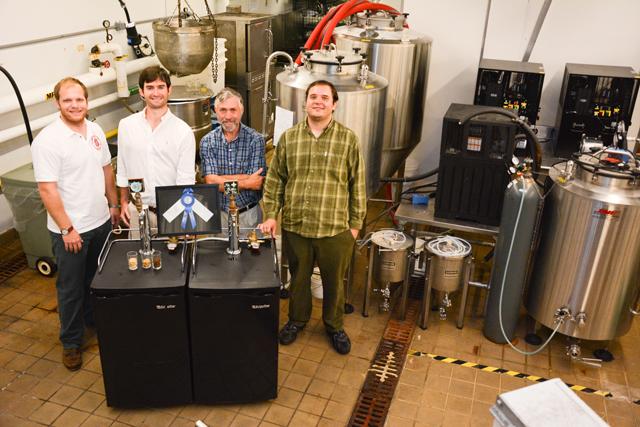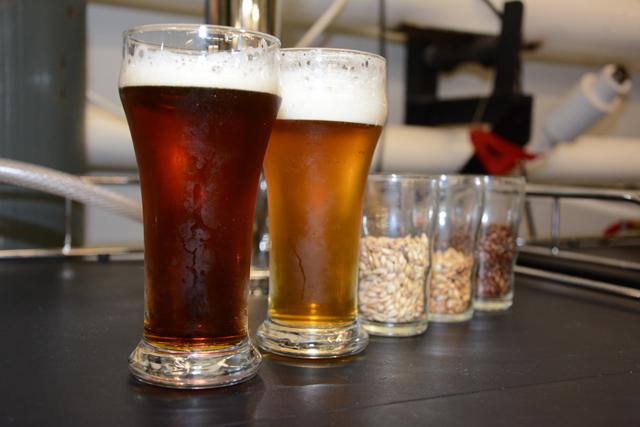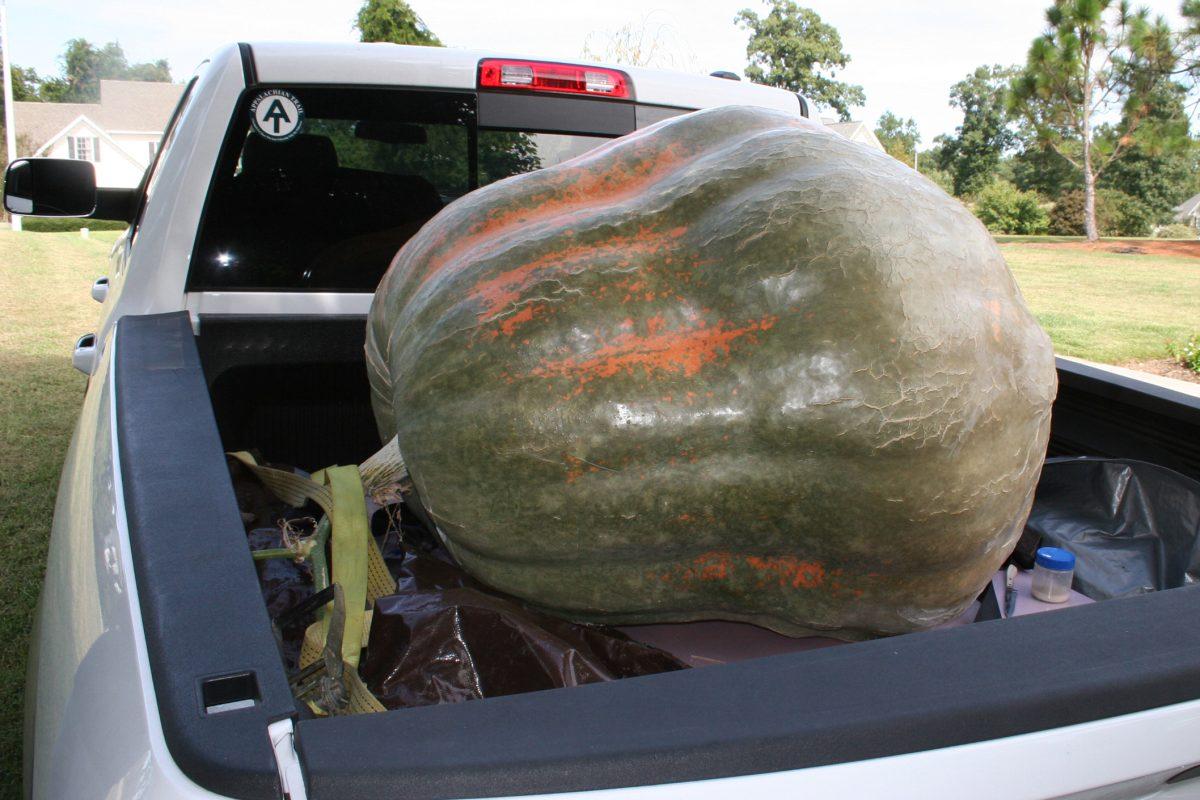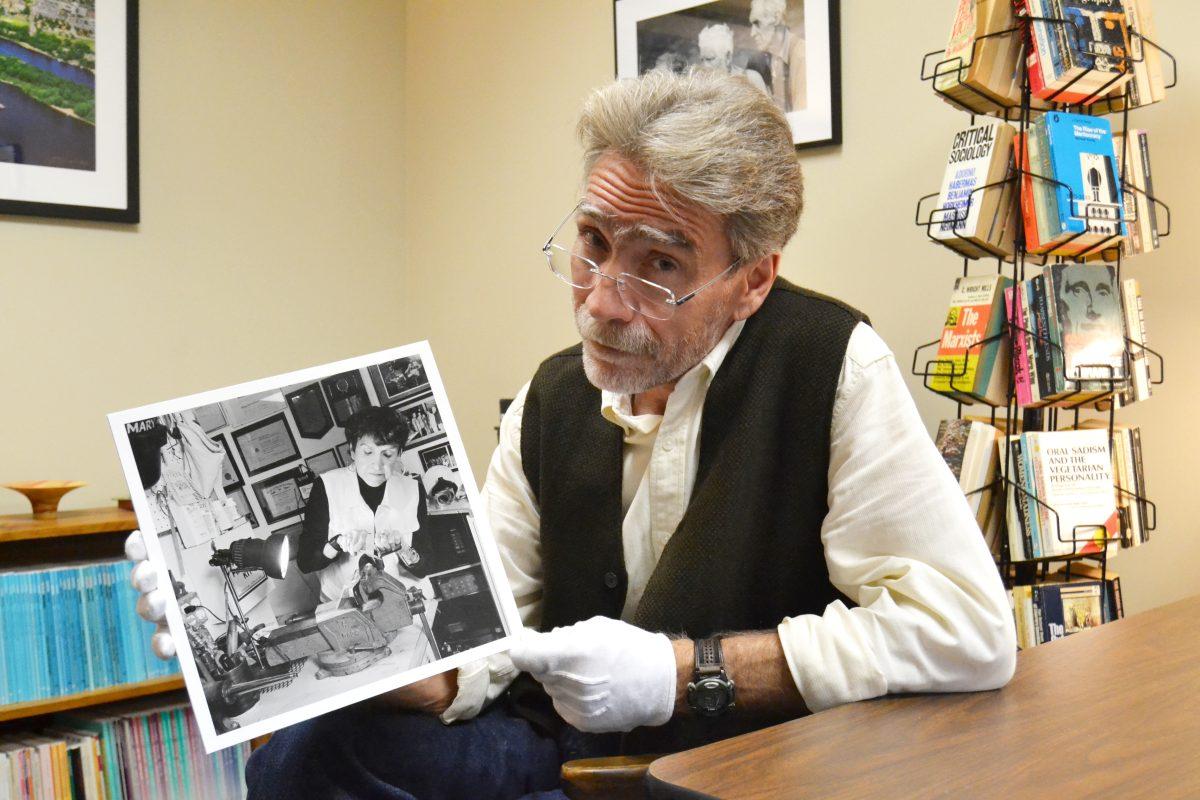From a number of the top beers brought forth for judging at the 2012 North Carolina’s Brewer’s Cup, three brews originated at N.C. State. These beers were created by researchers in the brewery cradled within the lower level of Schaub Hall.
John Sheppard, a professor of food, bioprocessing and nutrition sciences, spearheaded the creation of the N.C. State brewery to research the brewing process in 2006. Since then, Sheppard has seen it grow in scale and recognition. The brewery produced 50 to 60 barrels—more than 1,550 gallons—of beer last year as part Sheppard and three graduate students’ research.
During that time Sheppard and his team shared their brews at more than two dozen University functions, including events hosted by the College of Veterinary Medicine, the College of Engineering and the Food, Bioprocessing and Nutrition Sciences Department.
“The craft brewing industry in North Carolina is a growing part of the food and beverage industry,” Sheppard said. “What we’re trying to do is provide a facility and expertise that helps to facilitate high-quality products in North Carolina. By spreading the science behind brewing to the people that are involved in the local craft brewing industry we’re hoping to really make North Carolina a craft-brewing center in the U.S.”
For Blake Layfield, a Ph.D candidate in food, bioprocessing and nutrition sciences studying under Sheppard, this means many hours spent trying to better manage the brewing process and sharing his knowledge of beer.
“In my research, I’m looking at yeast aging, and we’re also looking to reduce this variability in fermentation,” Layfield said. “It’s about maintaining a yeast management strategy and making a better brew.”
However, in the process of researching ways to make better brews, Layfield and his peers amassed a full catalog of brews. With much of their research being active year-round, the N.C. State brewery has also taken some characteristics of a commercial brewery including an offering of beers that changes based on the season and the movements of the beer market.
Since the team started brewing on a more regular basis two years ago, different parts of the University have been able to offer funds to get a chance to taste some of the brewing researchers’ results. Although the brewery doesn’t sell its products to the public, the money generated from the distribution of its beers to different parts of campus has helped to grow the means for brewing students to learn how to manufacture beer.
This spring the brewery offered four beers on tap, an India Pale Ale that won first place in its category in the 2012 N.C. Brewer’s Cup, an amber ale, a pilsner and a kolsch. However, every researcher has their favorite.
“I think [the pilsner is] most sophisticated beer we make,” Sheppard said. “It takes the longest to make and it has a very complex taste but it’s also nice and refreshing so it’s not a heavy beer — but it’s not Bud Light. And because of that, you can have maybe more than one glass.”
In addition to research goals and furtherance of fermentation science, the research team at the brewery conducted outreach that included lab analysis work for a handful of Triangle-based craft breweries—Natty Greene’s and Raleigh Brewing Company among them.
Sheppard and his students also traveled around the world to talk about their research at the World Brewing Congress, the American Society of Brewing Chemists and the European Brewing Convention.
“It’s been great,” Layfield said. “We’ve gotten some awards in the form of scholarships for our research and we’ve also gotten some great accolades for quality in terms of the taste perspective of our beer.”
The N.C. State brewery is not open to any undergraduate courses, but Sheppard and his team have conducted a few tours for campus groups.
“Right now it’s only for my graduate research program so there are no actual courses in brewing science,” Sheppard said. “We are considering the possibility of offering some short courses, but that’s in the works.”
“Brewing is a neat science for many reasons but also because it has many “feet” in different areas of food science,” Layfield said. “ The entire brewing process is a fun vehicle for teaching food science in general … You’re learning a little about everything without even thinking about it and that’s really the best way to learn.”
The Brickyard Red and Chancellor's Choice IPA are two of the several kinds of beer brewed at the Pilot Plant in the Schaub Food Science Building. Photo by Chris Rupert.






